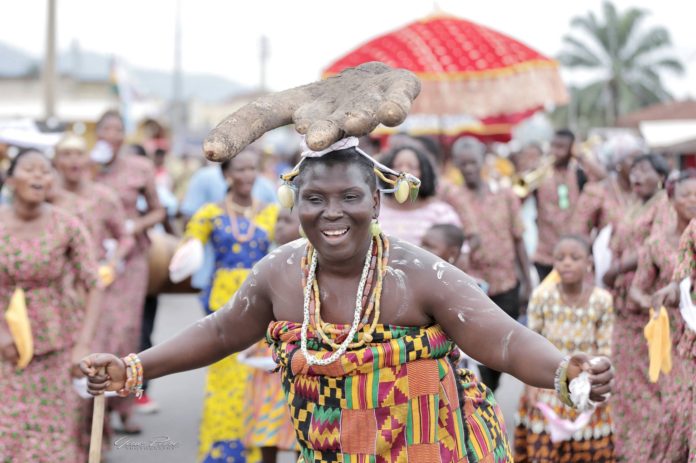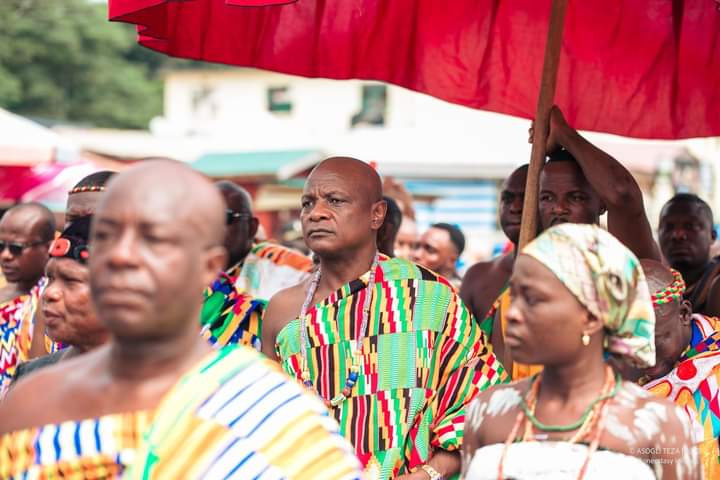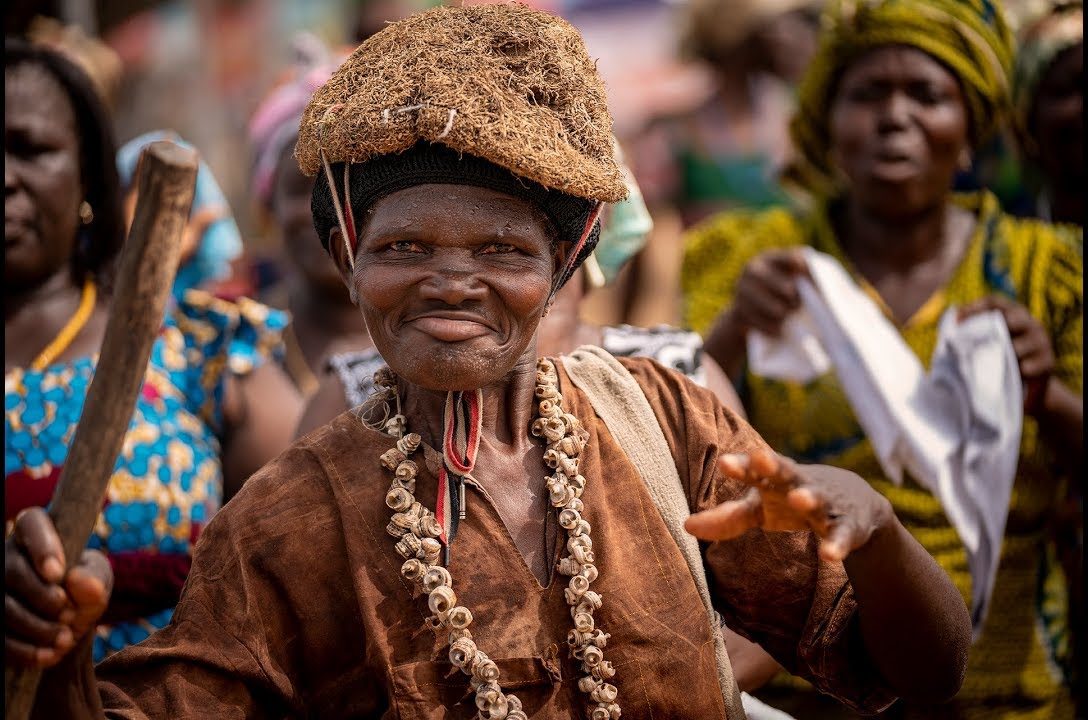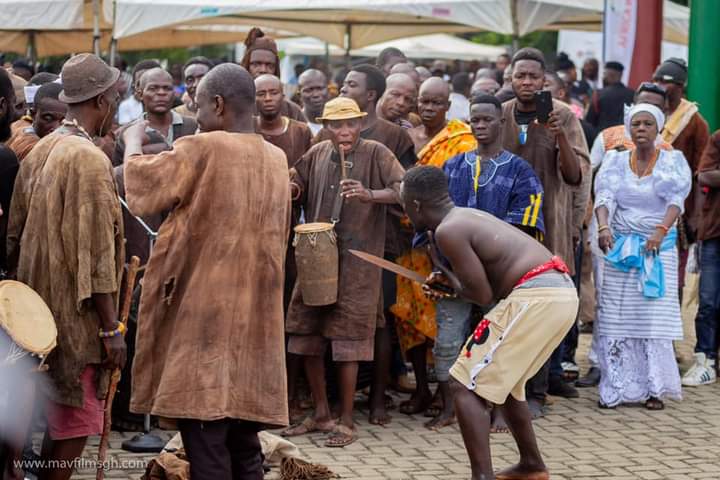Asogli Te Za Festival, known as Asogli Yam Festival is an annual festival celebrated in September by the people of Asogli in the Ho Municipality located in the Volta Region of Ghana.
In essence, it is a harvest festival honoring the growing of yam that is observed by the Asogli State (Ho) and its neighboring communities, including Sokode Gbogame, Abutia Klefe, Akrofu, and others.
The festival this year was no exception, a brilliant exhibition of the rich Ghanaian culture and tradition.
The celebration seeks to educate and entertains both Ghanaians and visitors about Asogli traditions and an opportunity for experiencing traditional music, dance, and storytelling.
The week-long celebration which started on August 6, 2022, and ended on Sunday, September 11 was themed “Let’s eschew greed, unite for peace, Development, and Prosperity.”
The Origin of Yam Cultivation
Yam is called “ete” in Ewe. The word literally means it is swollen. Oral history has it that a hunter on his normal hunting expedition discovered the crop in the forest.
It was during the famine period but instead of taking his newly discovered tuber home, he decided to hide it in the soil for use some other time.
When he later went back for it, the tuber had germinated and grown bigger. This was how the cultivation of yam started.
Origin of the Festival
The celebration was brought into Ghana by the Ewe people of Ghana when they migrated from Notse in the Republic of Togo, where it is still celebrated.
In 2004, Togbe Aƒede XIV, Agbogbomefia of Asogli State (Paramount Chief) brought back the celebration of the Yam Festival which had been abandoned for over a decade.
Togbe Aƒede XIV provided leadership in uniting many Chiefs throughout the Volta Region and extending to other parts of Ghana and Togo. As a result, many of these chiefs attend the Yam Festival.
Yam cultivation is a very tedious job, and history has it that in those days some people who ventured into it did not live to enjoy the fruits of their labour.
It was, and still is, labour-intensive, energy-sapping, and quite hazardous, hence the proverb “Ne wonye eteti tsogbe wo dua ete la, ne egbor ma kpor etsroa ha du o”.
Literally, this means if it were during the day of planting of yam that yam is eaten; the goat would never taste the peel.
Diligence was therefore required and the permission and guidance of the gods of the land and the ancestors was sought during the entire period from planting through harvesting.
During the harvest time which is normally in September, the gods and ancestors are served first with the boiled and mashed yam, normally white and red-oiled, called “bakabake” before any living being tastes it.
This rite is called “Dzawuwu”. After that, the rest of the mashed yam is eaten as a communal meal, a symbol of unity and reconciliation of families, clans, and the entire community.
Ban on funerals
As part of preparations for the annual Te Za celebration of the people of Asogli, the Asogli State Council usually lays a customary ban on funerals in the entire state for a month.
The ban which is an annual phenomenon observed for one month before the celebration of Te za is to be strictly observed, implying that all funerals and burial ceremonies are to be suspended until the ban is lifted.
Durbar
A durbar of Chiefs and people of Asogli is held on a Saturday at the Ho Jubilee Park to climax each year’s Asogli Yam Festival celebrations.
The Durbar is used to showcase the rich cultural dexterity of all traditional areas.
The festival attracts Ewes from the Republic of Togo, as well as local and foreign tourists, chiefs, and some members of the diplomatic corps.
A government delegation is also usually in attendance. Togbe Afede XIV, Agbogbomefia of Asogli State (Paramount Chief) sits in state to receive homage and address the gathering.
PHOTO CREDIT : MAV FILMS GH







